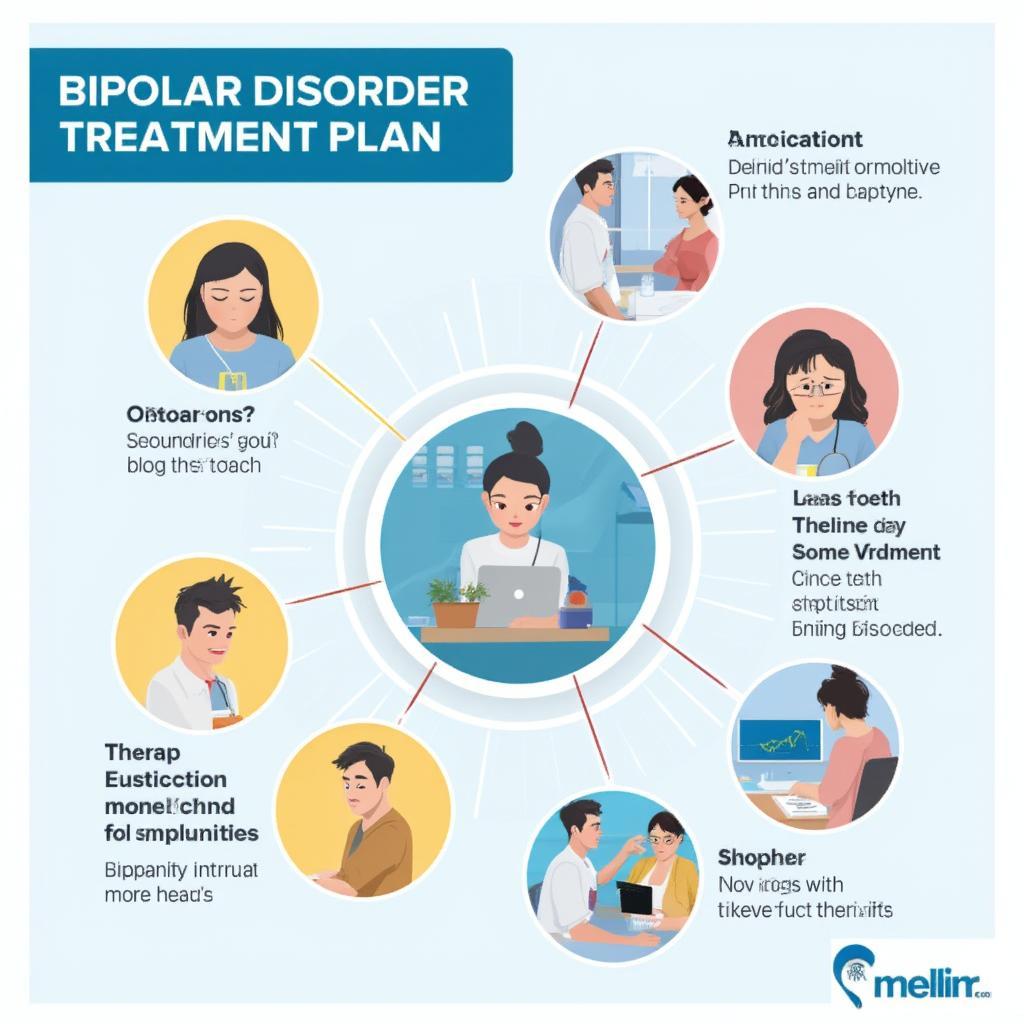Does Tough Love Work With Bipolar disorder? This is a complex question with no easy answer. While some believe a firm approach can motivate someone with bipolar disorder to manage their condition, research suggests that tough love can often be counterproductive, even harmful. It’s crucial to understand the nuances of bipolar disorder and adopt strategies that promote support and understanding.
Understanding Bipolar Disorder and the Impact of Tough Love
Bipolar disorder is a serious mental illness characterized by extreme shifts in mood, energy, and activity levels. These shifts can range from manic episodes, marked by heightened energy and impulsivity, to depressive episodes, characterized by profound sadness and loss of interest. Tough love, often involving setting strict boundaries and withdrawing support unless certain conditions are met, can exacerbate these mood swings and create a sense of isolation.
Why Tough Love Can Be Detrimental
- Increased Stress and Anxiety: The pressure to conform to external expectations can significantly increase stress and anxiety, potentially triggering mood episodes.
- Erosion of Trust and Communication: Withdrawing support can damage the relationship and make it harder for the individual to seek help when needed.
- Feelings of Shame and Guilt: Tough love can reinforce feelings of inadequacy and failure, leading to further withdrawal and isolation.
- Difficulty Adhering to Treatment: Managing bipolar disorder requires consistent adherence to medication and therapy. Tough love can create an environment where seeking and maintaining treatment becomes more challenging.
Supportive Alternatives to Tough Love
Instead of tough love, focus on building a supportive and understanding environment. Here are some effective strategies:
- Educate Yourself: Learn about bipolar disorder, its symptoms, and treatment options. This understanding is crucial for providing effective support.
- Encourage Professional Help: Support the individual in seeking professional help from a psychiatrist or therapist specializing in bipolar disorder.
- Develop a Crisis Plan: Work together to create a plan for managing potential crises, including identifying triggers and coping mechanisms.
- Practice Active Listening: Create a safe space where the individual feels comfortable sharing their experiences without judgment.
- Set Healthy Boundaries: While support is essential, setting healthy boundaries is also important for both the individual and their support system. These boundaries should be established collaboratively and focus on promoting well-being.
Building a Strong Support System
A strong support system is vital for individuals with bipolar disorder. Family members, friends, and support groups can play a crucial role in providing encouragement, understanding, and practical assistance.
“Tough love might seem like a solution, but it often backfires when dealing with bipolar disorder. It’s important to remember that mood swings are not a choice. Empathy, understanding, and consistent support are key to helping someone navigate this challenging illness.” – Dr. Emily Carter, Psychiatrist specializing in Mood Disorders
The Importance of Professional Guidance
While family and friends can provide invaluable support, professional guidance is essential for managing bipolar disorder effectively. A qualified mental health professional can:
- Diagnose Bipolar Disorder: Accurately diagnose the condition and rule out other potential underlying issues.
- Develop a Personalized Treatment Plan: Create a tailored treatment plan that may include medication, therapy, and lifestyle modifications.
- Monitor Treatment Progress: Regularly monitor the individual’s progress and adjust treatment as needed.
- Provide Ongoing Support and Education: Offer ongoing support, education, and resources to both the individual and their family.
“Bipolar disorder is a treatable condition. With the right support and professional guidance, individuals with bipolar disorder can lead fulfilling and productive lives.” – Dr. David Miller, Clinical Psychologist
 Bipolar Disorder Treatment Plan: Medication and Therapy
Bipolar Disorder Treatment Plan: Medication and Therapy
Conclusion: Embracing Empathy and Understanding
Does tough love work with bipolar? The answer is generally no. While well-intentioned, tough love often exacerbates the challenges of living with bipolar disorder. Instead, prioritize empathy, understanding, and consistent support. Encourage professional help, build a strong support system, and focus on creating an environment that fosters healing and recovery. With the right approach, individuals with bipolar disorder can thrive and lead fulfilling lives.
FAQ
- What are the signs of a manic episode?
- What are the signs of a depressive episode?
- How is bipolar disorder diagnosed?
- What are the treatment options for bipolar disorder?
- What can I do to support a loved one with bipolar disorder?
- What are some helpful resources for bipolar disorder?
- Where can I find a support group for bipolar disorder?
Need More Help?
For further support and information, please contact us:
Email: [email protected]
Address: Michigan Ave, Suite 3100, Chicago, IL 60611, USA.
We have a 24/7 customer support team available to assist you.


